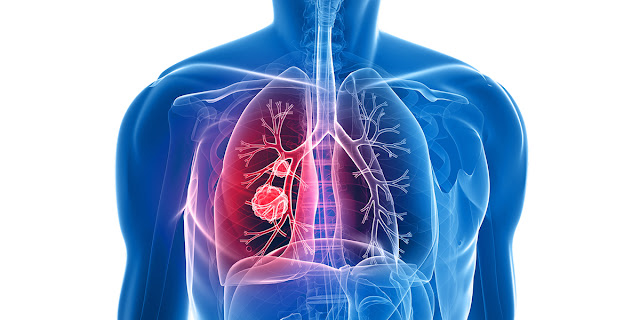Recognizing Lung Cancer Awareness Month
The month of November is designated as Lung Cancer Awareness Month. The significance of this designation is to raise awareness about how Lung Cancer accounts for approximately 25% of all cancer deaths. Each year, lung cancer claims more compared with other cancer.
Lung cancer is cancer that begins in the lungs. There may be no signs or symptoms in the early stages. A history of smoking increases the likelihood of being diagnosed with the disease, but nonsmokers can also develop it.Lung cancer symptoms:
Lung cancer typically doesn't show any symptoms in its early stages. Common presenting symptoms of lung cancer in its advanced stages include:
- A new, recurring cough
- New wheezing attack
- Coughing up blood or rusty phlegm
- Breathing difficulty
- Pain in the chest, particularly when inhaling and exhaling, having a good laugh, or coughing
- Voice hoarse
- Weight loss without effort
- Appetite loss
- Fatigue
- Fluid in the lungs
- Infections that persist, such as respiratory tract infections
- The spread of cancer to other body tissues
- Breathing shortness in seniors
Depending on which organ is affected, this can result in additional signs and symptoms such as migraine, stomach cramps, pain, and so on.
What causes Lung cancer?
Lung cancer can strike anyone. Lung cancer occurs when lung cells mutate or change. This genotype (a constant transition in a gene's DNA sequence) can be caused by a variety of factors. This change in lung cells most commonly occurs when individuals respire unsafe or toxic materials. Even if you have been exposed to these stimulants for many years, you are still at risk of contracting lung cancer.
Smoking
The most primary trigger of lung cancer is smoking. It is responsible for approximately 90% of all lung cancer cases. Tobacco smoke contains numerous chemicals that have been linked to lung cancer. If you continue to smoke, quitting is the single most important thing individuals can do for their respiratory health.
Cigarette smoke affects more than just smokers. If you were a smoker in the past, your risk has decreased, but it has not gone away entirely—you can still get lung cancer. Smoking can have an impact on nonsmokers as well. Secondhand smoke exposes you to the risk of lung cancer and other illnesses.
Radon
Radon is the second leading cause of lung cancer after smoking. Radon is a radioactive gas that is colorless and odorless and occurs naturally in soil. It rises from the ground and enters components across narrow spaces and fissures. Radon exposure coupled with cigarette smoking significantly increases your risk of developing lung cancer.
Unsafe Chemicals
Certain hazardous chemicals can cause lung cancer if you are exposed to them. Working with asbestos, uranium, arsenic, cadmium, chromium, nickel, and certain petroleum products is particularly hazardous, increasing the risk of lung cancer.
Genes
Genetic factors may also play a role in the development of lung cancer. If you have a family history of lung cancer, you may be at a higher risk of developing the disease. It's critical to tell your doctor if anyone else in your family has or has ever had lung cancer.
Is Lung Cancer Preventable?
Not all types of lung cancer can be prevented. However, there are things you can do to reduce your likelihood, such as adjusting the risk factors over which you have control.
Lung Cancer Prevention Diet
Diet plays a very important role in reducing the development of cancer in the body. A Diet with a good number of fruits and vegetables is important to get the best nutrition. A healthy diet keeps the body fit and healthy.
Intake of up to 100 grams of fresh fruits reduce the risk of lung cancer among current and previous smokers up to 5 percent.
Consuming fruits and vegetables rich in antioxidants such as dark green leafy vegetables, fish help in getting the right amount of nutrient thus helpful in the prevention of Lung cancer.
However, there are no specific fruits and vegetables that are helpful in the Prevention of lung cancer. Eating a nutrient-rich balanced diet is proven quite helpful.
Avoid taking supplements
There are currently no supplements available to prevent lung cancer. As a result, if you have a nutritional deficiency, you should always take supplements under the supervision of your healthcare provider.
Instead of taking supplements, it is recommended to eat a wholesome, nutritionally sound, and healthy meal.
Wrapping up,
Lung cancer patients frequently experience a variety of signs and symptoms, as well as treatment side effects. Supportive care is critical for improving their quality of life. Athulya Assisted Living is providing a palliative care for cancer patients along simple breathing exercises for seniors and customized support in India for effectively improving the patient's quality of life.




Comments
Post a Comment